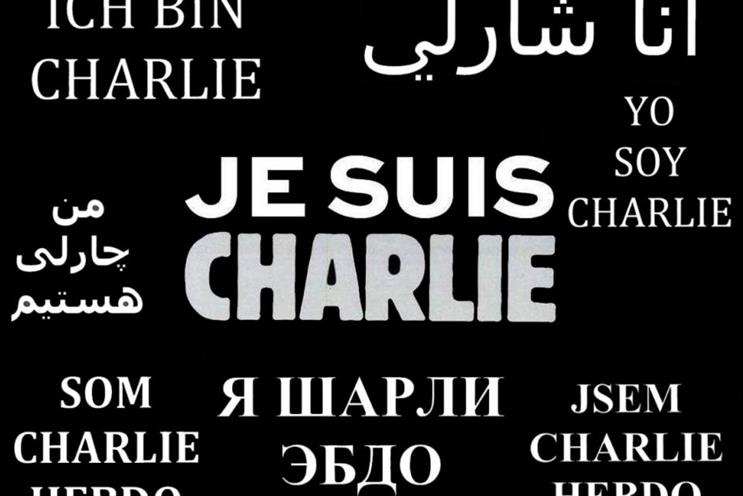
The murder of 12 people in Paris today at the headquarters of the weekly French magazine, including editorial director Stéphane Charbonnier, has placed the role of the media firmly in the spotlight at the start of 2015.
French president François Hollande said the killings were a "terrorist operation" and revealed that several other attacks had been prevented in recent weeks. He believes the attacks were because France represents "a country of freedom".
An attempt to assassinate free press
Michelle Stanistreet, general secretary at the National Union of Journalists, called it an "attempt to assassinate the free press" and noted it had been "cynically targeted on press day to maximise casualties".
She added: "Our hearts go out to the families of the 10 journalists and police officers killed in this despicable raid. The newspaper had already been the subject of attacks by people who want to suppress democracy and freedom of speech.
"These journalists have now paid with their lives; the perpetrators must swiftly be brought to justice. Supporters of free speech and civil liberties must stand together with governments to condemn this act and defend the right of all journalists to do their job without fear of threats, intimidation and brutal murder."
The slogan "Je Suis Charlie", initially posted on the magazine's website which translates as "I am Charlie", has been adopted by supporters around the world in a show of solidarity against the attack.
Proudly irreverent for decades
Charlie Hebdo has a long, celebrated but contentious history of lambasting and lampooning absolutely everybody, noted The Spectator magazine. Its targets include all religions, all identity groups, minorities and majorities.
In recent years it has attracted attention for its refusal to apply different treatment to Islam, which forbids any images of the prophets. The Spectator's editorial leader column notes the magazine knew that carrying on with satire, in the name of free expression, carried a real danger — its office in Paris was firebombed three years ago on account of this, and it still carried on with its irreverence.
Tony Barber in the Financial Times called the attack "despicable and indefensible", and likened it to other politically motivated atrocities, from 9/11 to the killing last May of four people at the Jewish museum in Brussels.
However, noting the "high emotions" in France, where anti-Islamism forms a key part of the electoral attraction of Marine Le Pen and her far-right National Front party, Barber also stressed that the French Council of the Muslim Faith has been among the first to condemn the attack in Paris, calling it "a barbaric act against democracy and freedom of the press".
Barber said: "We need to keep in mind that the worst terrorist outrage in Europe of recent years, the murder of 77 people in Norway in 2011, was committed not by Islamist militants but by a far-right fanatic, Anders Behring Breivik."
He added: "This is not in the slightest to condone the murderers, who must be caught and punished, or to suggest that freedom of expression should not extend to satirical portrayals of religion. It is merely to say that some common sense would be useful at publications such as Charlie Hebdo, and Denmark’s Jyllands-Posten, which purport to strike a blow for freedom when they provoke Muslims."
Testing the boundaries of taste
But should the views of extremists warrant special treatment from the press? Now is not the time to give in to fear, warned Simon Jenkins in The Guardian. He noted how those who comment through satire are "peculiarly bold", with ridicule being the "most devastating and wounding of weapons".
Jenkins accepted there can be no doubt that Charlie Hebdo was "testing the boundaries of taste and religious tolerance", but called it the "burden freedom of speech in a democracy has to bear".
In murdering so many, Jenkins said the terrorists sought to terrify others and to goad otherwise liberal people to illiberal actions. To them, western democracy is skin deep in its freedoms, while the simple disciplines of their form of Islam are more powerful, more courageous, more lasting.
'Very little seems funny today'
Charlie Hebdo has a reputation for being a highly political magazine, likened to the UK's own weekly satirical magazine, Private Eye, but on steroids.
Private Eye editor Ian Hislop said: "I am appalled and shocked by this horrific attack - a murderous attack on free speech in the heart of Europe.
"I offer my condolences to the families and friends of those killed - the cartoonists, journalists and those who were trying to protect them. They paid a very high price for exercising their comic liberty."
He added: "Very little seems funny today."
From Hara-Kiri to Charlie Hebdo
The publication has attracted critics and fans alike for its often provocative and crude depictions of venerated figures and institutions, including Catholicism, the Pope and Judaism, as well as Islam and many political parties.
Charlie Hebdo started life as Hara-Kiri in the early 1960s as an anti-establishment journal, but was forced to shut down following controversy surrounding the death of former president general Charles de Gaulle.
The BBC recalls that shortly before de Gaulle's death in 1970, a fire at a disco killed more than 100 people. Charlie Hebdo headlined the story of de Gaulle's death with "Bal tragique a Colombey (de Gaulle's home) - un mort," meaning "Tragic dance at Colombey - one dead,". The publication was soon banned, but resurfaced by changing its name to Charlie Hebdo (or Charlie Weekly).
As the world began to learn more about what happened in Paris today through the media, Christophe DeLoire, director general of press freedom organisation Reporters Without Borders, captured the prevailing mood when he termed it "the darkest day of the history of the French press".



.jpg)


.jpg)